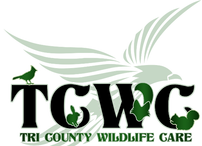|
Tri County Wildlife Care is now on Twitter! Follow us @TCWildlifeCare and help us spread the word about TCWC by re-tweeting our tweets.
0 Comments
THANK YOU to all who have dropped by donations of towels and medications too! This is hopefully the last of our baby songbirds going into a flight cage. Male MOCKINGBIRDS can mimic as many as 200 sounds, mostly bird songs, but alarms and animal noises too. Soon this one will be off to FREEDOM! We could not do this work without your help...
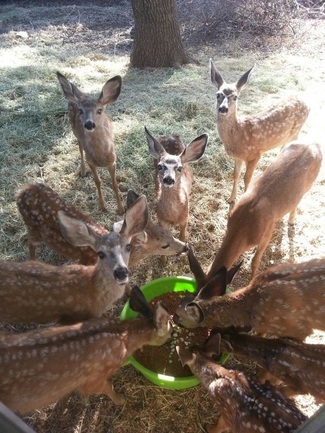
OUR NEED IS LONG TERM! The drought had already adversely effected our wildlife, but the Butte fire means we will need to hold wildlife longer and will need your support more now than ever. The fawns are released into the canyon, but their browse is burned and birds and squirrels are coming in now too. THANK YOU for your support! Tri County Wildlife Care has had many kind inquires asking how to help during this time of great need. What we really need is donations to purchase food. We are buying squirrel formula, fawn formula and fawn feed to hold them over until we have some regrowth in the canyon. We are also holding raccoons and opossums in search of appropriate wild areas that are safe for release which meets our required criteria. We currently have over 80 critters in care and we usually have very few this time of year. The drought was already impacting our intake and the fire just set us back further. Thank you for your continued support of TCWC, it is greatly appreciated.
To donate to TCWC online, please visit the donation page on the Tri County Wildlife Care website by CLICKING HERE. For mail in donations: - Make out your check to "Tri County Wildlife Care" - Mail to: TCWC P.O. Box 367 Jackson, California, 95642 Walk in donations can be taken to The Feed Barn located at 11261 Prospect Dr, Jackson, CA 95642 Tri County Wildlife Care is a 501(c)(3) non-profit organization supported solely by donations. 100% of donations are used for the benefit of wildlife in Amador, Calaveras, and Eastern San Joaquin counties. 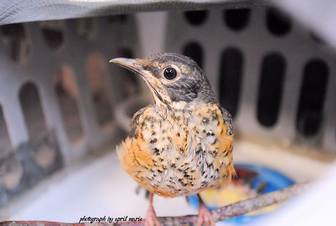 Friends and supporters of TCWC, Amador and Calaveras counties are heavily populated with wildlife, making our area even more majestic and beautiful. Deer, foxes, skunks, raccoons, opossums, squirrels, rabbits and large and small birds, just to name a few, all call Amador and Calaveras home. As the Butte Fire comes under containment, many wildlife critters will be in need of rehabilitation. Tri County Wildlife Care, serving Amador, Calaveras and Eastern San Joaquin counties, will need your help with the aftermath of this disaster. As always, we thank you for your continued support. Please stay safe, our thoughts are with all of those affected, human and animals alike. Donate to Tri County Wildlife Care Tri County Wildlife Care is a 501(c)(3) non-profit organization supported solely by donations. 100% of donations are used for the benefit of wildlife in Amador, Calaveras, and Eastern San Joaquin counties.
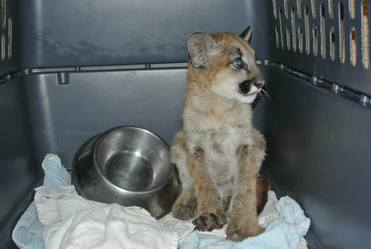 The mountain lion kitten that was rescued on Sept. 13 in Calaveras County has found a new home at a permitted restricted species facility in Central California. Over the past week at the CDFW’s Wildlife Investigation Lab, the kitten has stabilized well and is making a good recovery. The injuries to its paws and eyes are healing, its appetite is increasing daily and bodily functions are returning to normal. Staff is hopeful for a full recovery. At its new home, the kitten will have access to regular veterinary care as needed and will eventually serve as an educational conservation ambassador to the public. CDFW will let the facility make their own public announcement when they are ready. CDFW wishes the feline well in its new home and reminds the public that if they find wildlife in distress to call their CDFW Regional office. Below are a few more pictures of the kitten leaving CDFW’s facility. 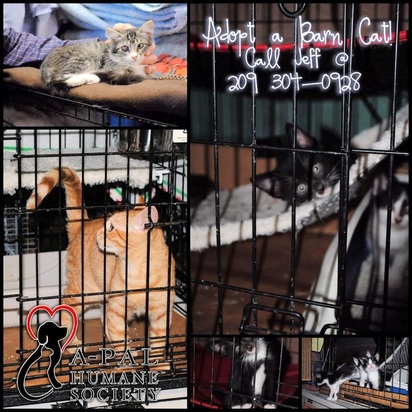 Adopt an A-PAL Humane Society Barn Cat Buddy! •Great for barns, warehouses, garages, vineyards, etc. •Simply provide food, shelter, and water, daily. All cats are spayed/neutered, and rabies vaccinated! Services that cost well over $125. for only $15. each! We will even bring your new Barn Buddy to you! •Barn Cat Buddies are green rodent control! No more need to use dangerous poisons around your place! •We also have friendly house cats for the same low rate of $15! If you are interested or have any questions, please call Jeff at (209) 304-0928! Your family may not be together during a wildfire. Make plans today for how to stay in touch and be sure to test this plan. Get the America’s PrepareAthon! “How to Prepare for Wildfire” guide and more by visiting: http://1.usa.gov/1DCWSRT.
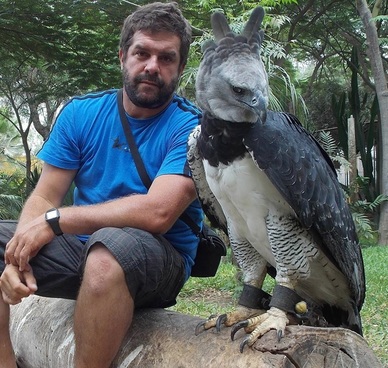 One of the most beautiful animals I have seen. This is Antonio Fernandini Guerrero with his harpy eagle he nursed back to health after it was shot. It is blind in one eye, and unfortunately cannot be released back in the wild. If you would like to learn more about Antonio and his work with the Harpy eagle, please feel free to contact him. He works with raptors in general. My friend Cassandra Caroline Živka Suština is putting together a Go Fund Me campaign to help Antonio with meat costs for his eagles, and to hopefully start working on building a larger enclosure and flight runs for the eagles. Once the campaign is up and running, I will post it here. P.S. This photo is genuine and not photoshopped. This particular harpy eagle is a female, and about 20 pounds with a 6.5 foot wingspan. Did you know? Harpy Eagles are among the world’s largest and most powerful eagles. Their rear talons are about 3-4 inches long – the same size as a grizzly bear’s claws! Like many other birds of prey, Harpy Eagles continue to bring fresh green twigs and branches to the nest after the chick has hatched. Some researchers think this helps keep insects and parasites away and provides a cooler environment for the nestling. A female can weigh up to two times more than her mate. Deforestation and shooting are the two main threats to the survival of Harpy Eagles. Plumage: The harpy eagle has dark gray feathers with a white underside. A black band of plumage spans its neck and a fan of gray feathers crowns its head. Male and female plumage is identical. Diet: A hunting carnivore and an apex predator, the harpy eagle preys primarily on tree-dwelling mammals like sloths, monkeys, and opossums. They will occasionally prey on other birds like macaws, and on reptiles like iguanas. Females generally target larger prey because of their size, leaving smaller prey for the males. Habitat: The birds live in the rainforests of Central and South America. They prefer large expanses of uninterrupted forest and spend the majority of their time in the forest canopy. They are rarely seen flying over the canopy or in open spaces. Geography: The harpy eagle is found primarily in South America, in countries like Brazil, Ecuador, Guyana, Suriname, French Guiana, Colombia, Venezuela, Bolivia, Paraguay, Peru, and northeast Argentina. The species is also found in areas of Mexico and Central America, though the populations are far smaller. Lifespan: The bird’s lifespan is believed to be 25-35 years. Social Structure and Breeding: Harpy eagles mate for life. Large nests made of sticks and branches and lined with softer materials are built at least 90 feet from the ground in huge trees like the kapok tree, the Brazil nut tree, or the Cambara tree. The harpy couple often reuses the same nest over many years. The female lays two eggs, but once the first egg hatches, the remaining egg is ignored and will not hatch. Both parents spend all their time protecting and raising the chick until it fledges, usually within 6 or 7 months, though it returns to the nest over the next 6-10 months for an occasional free meal. A harpy pair will produce a chick every 2-4 years. Young harpy eagles reach sexual maturity between the ages of 4 and 5. See more at: http://www.peregrinefund.org/explore-raptors-species/Harpy_Eagle#.dpuf Many sweet, adorable, kittens at The Feed Barn in Jackson/Martel for adoption and waiting for their furever home and family! $50 donation (for one kitten or $85 for two) to A-PAL Humane Society gets you a wonderful new furry family member who has their first shot, worming, and has been spayed or neutered! Stop by and meet them SOON!
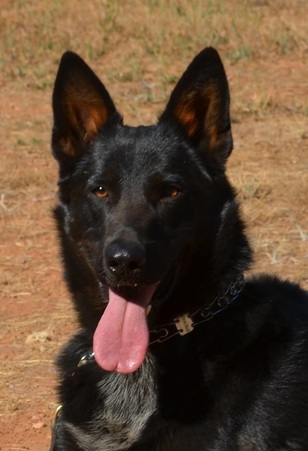 Luke is looking for his forever home!! Twin Cedar K9 would like to introduce you to "Luke"! Luke comes to us from the wonderful people at the Amador County Animal Control and Adoption Center. Luke is about 2 years old and per his Wisdom Panel DNA test, he is a German Shepherd/Cattle Dog cross. Luke is current on all of his vaccines, is neutered and is on heartworm prevention. Luke is very social with adults but we have not had the opportunity to see him with small children. We have not seen any aggressive behavior from Luke towards any people. When Luke first arrived at the ranch his behavior with other male dogs was not exactly stellar! He can be very pushy and dominant when he first meets other dogs especially with other male dogs. Since he has been with us and participating in the weekend group classes, he has shown huge improvement in his behavior with all dogs that he plays with now. Luke is learning all of the basic obedience commands and manners and he is doing very well. It won’t be long before he has mastered it all. Look is housebroken and has very good house manners. Please give Marge` a call if you would like to come out to meet this beautiful boy. 209-223-3194 or [email protected]  Rusty is looking for his forever home!! Rusty comes to us from the great folks at the Calaveras Humane Society. Rusty is about 1 year old and per his Wisdom Panel DNA test he is a American Staffordshire Terrier/Australian Shepherd cross. Rusty has been neutered, is current on all of his vaccinations and is on heartworm prevention. Rusty is a very happy go lucky kind of guy who just loves everyone that he meets. He is very playful but affectionate at the same time. Rusty has mastered all of his basic obedience and he gets along with other dogs. Rusty has had two different kennel mates and he has done well but he can be dominant when he is playing. If the other dog tells him to back off he will. Rusty has shared his kennel with male and female dogs. One of our volunteers took Rusty home for an overnight stay to see how he would do in a home setting. She reported that Rusty was perfect! He appears to be housebroken, he did not try to get on any furniture, and he did not beg from the table when they had dinner and breakfast. He slept the entire night on a dog bed on the floor next to the her bed. She stated that he did whine just a bit when she left to go to the store but settled down after a few minutes. Overall, she said he was a very good boy. Please give Marge` a call or send an email if you would like to come out to the ranch to meet this very special boy. 209-223-3194 or [email protected] |
Archives
April 2024
Welcome!PawsPartners.org is an alliance formed between A-PAL Humane Society of Amador County and Tri County Wildlife Care, the latter serving native wildlife in Amador, Calaveras, and Eastern San Joaquin Counties. Since inception we have added the Shelter Partners volunteer group, who support our local Animal Control organization, and Amador County Animal Response Team (ACART). Categories
All
|

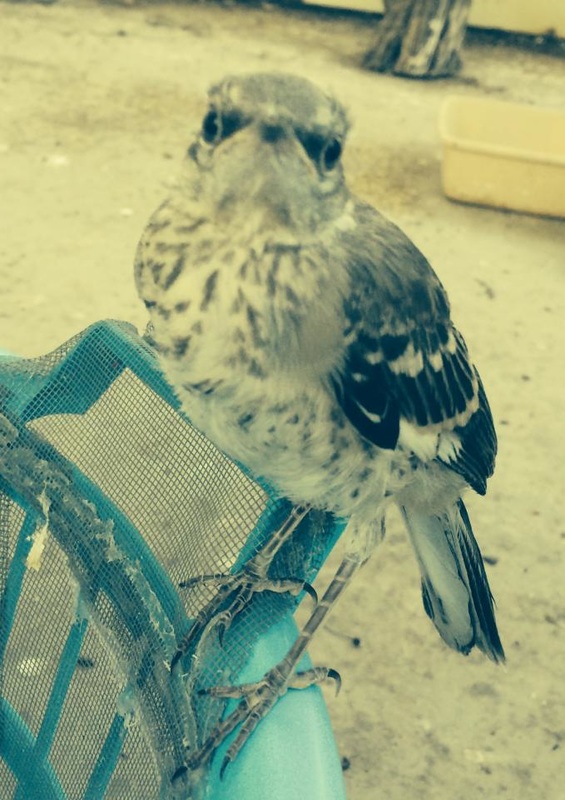
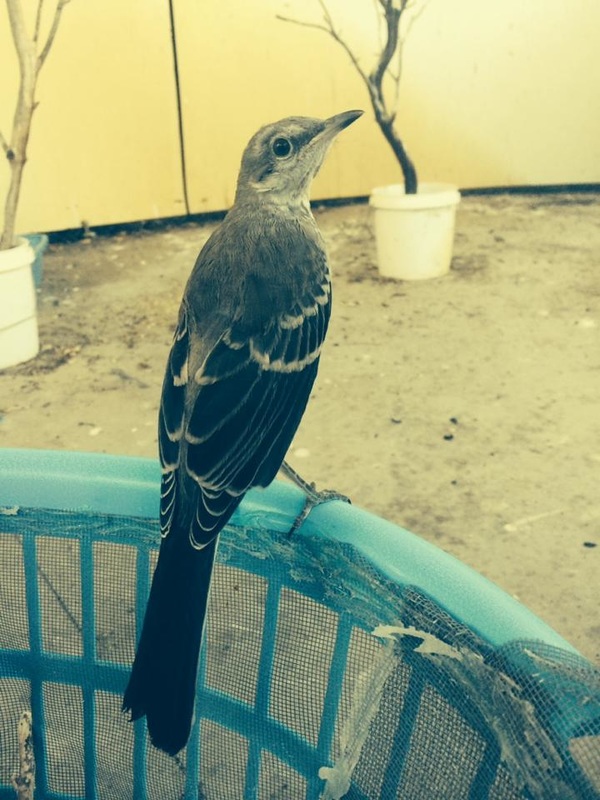
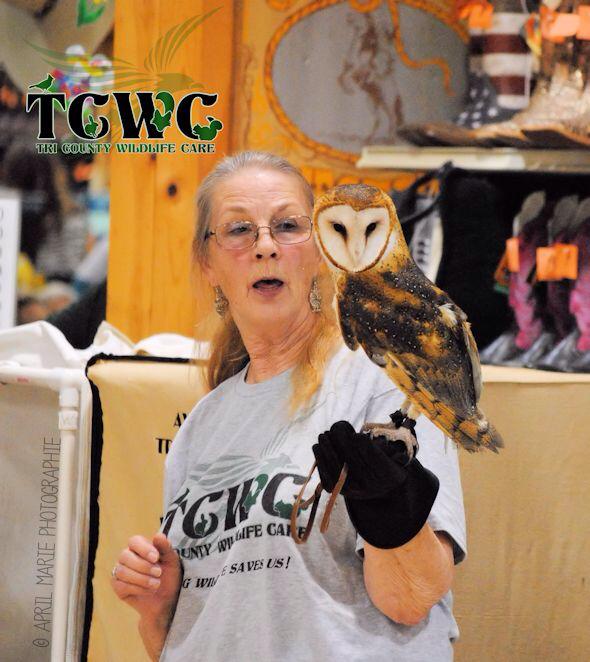
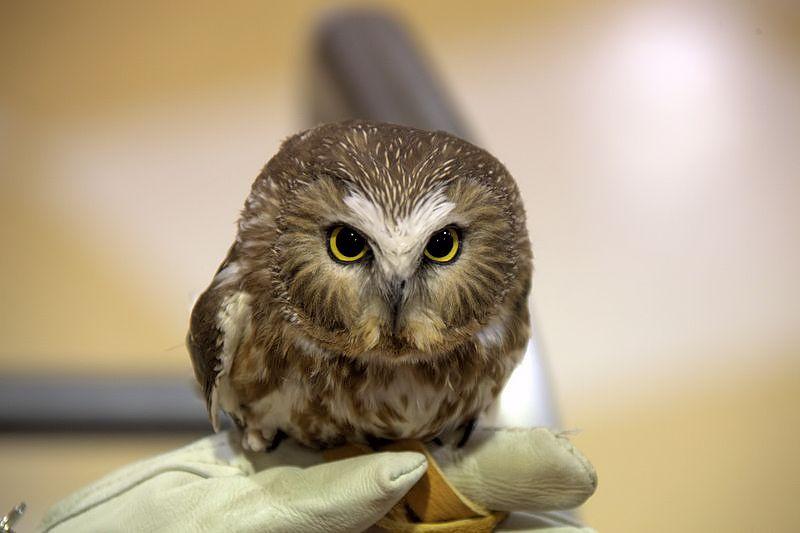

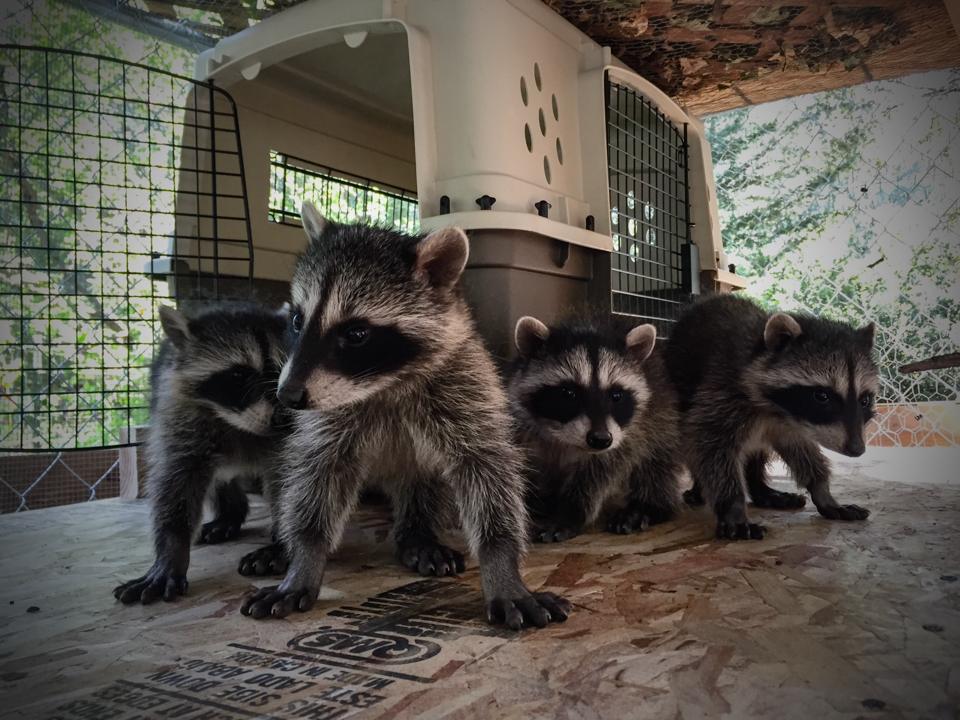
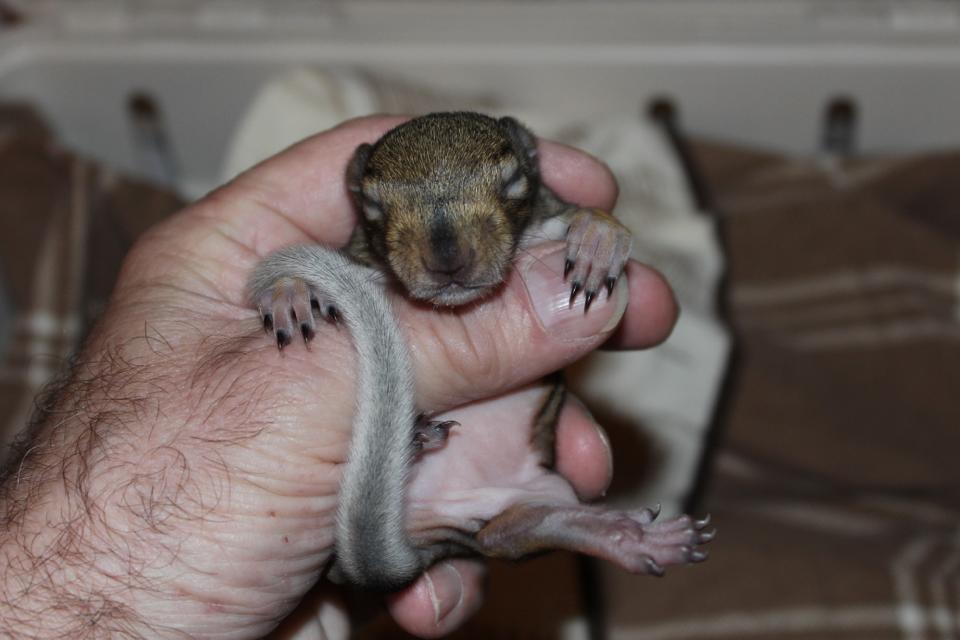
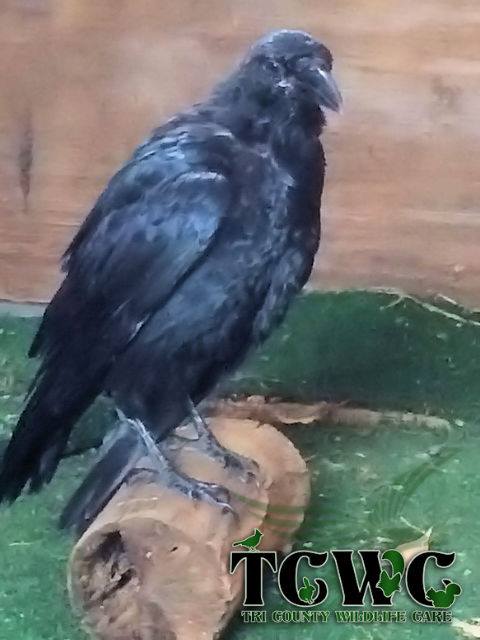
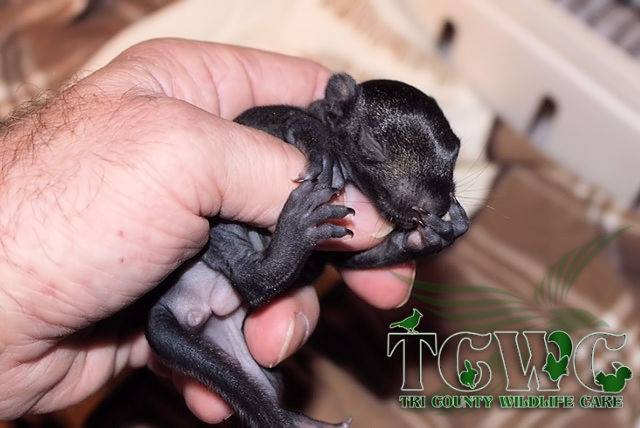
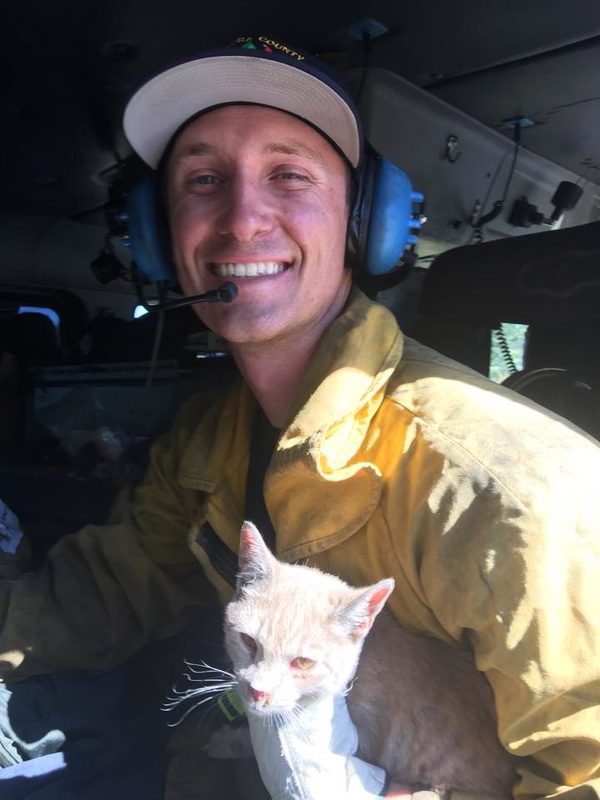
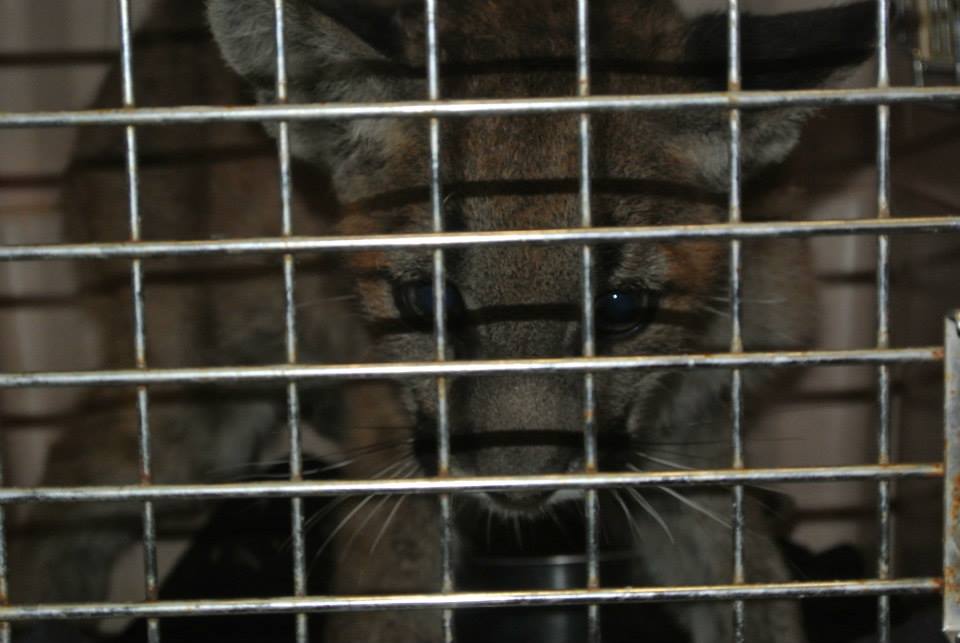
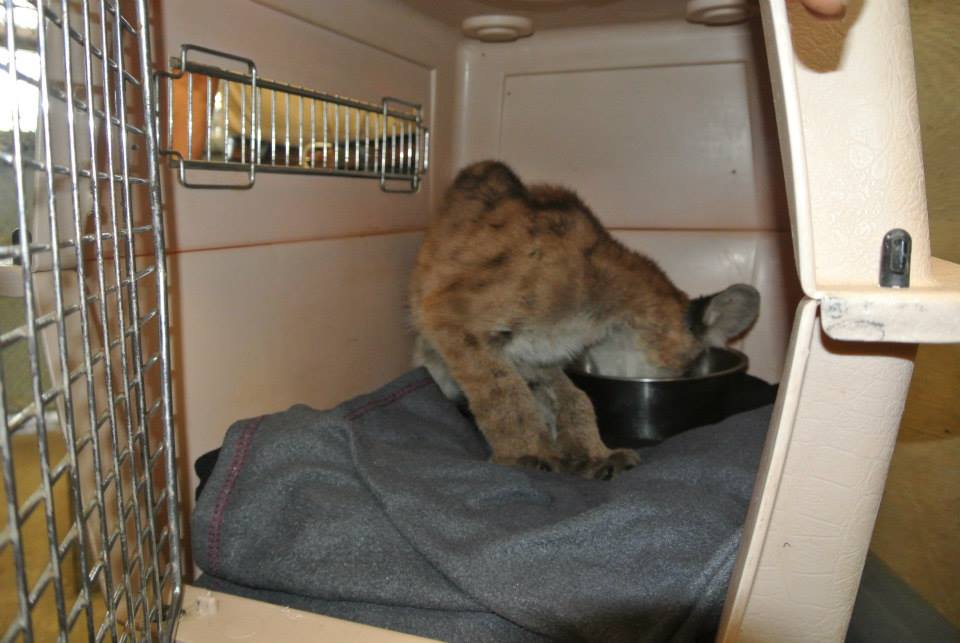
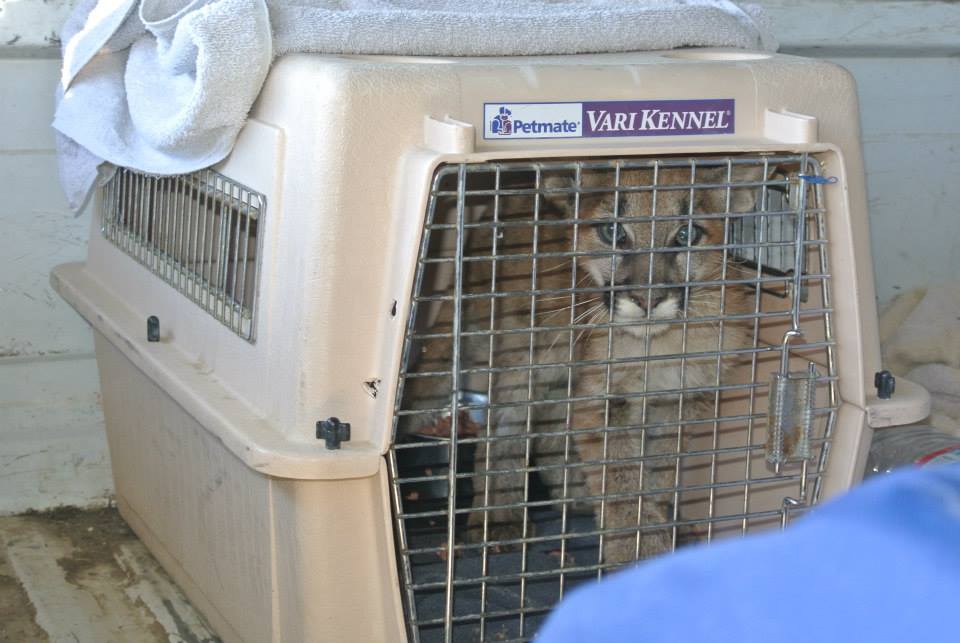


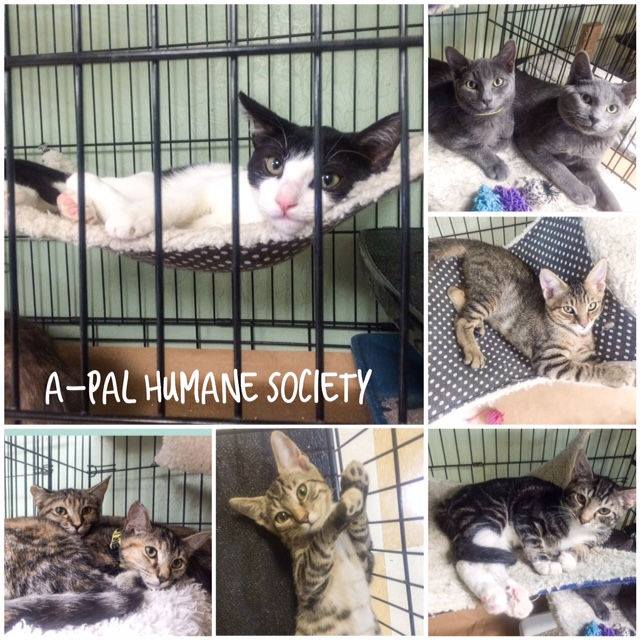

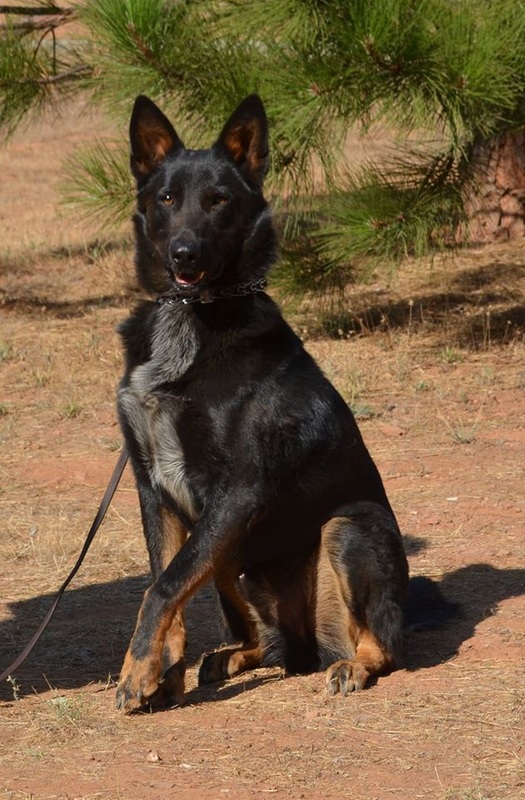
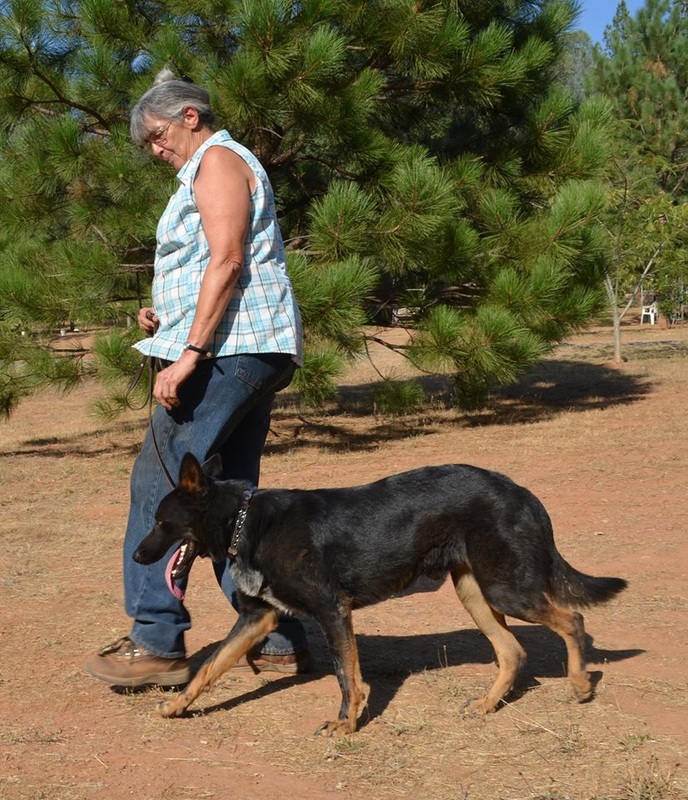


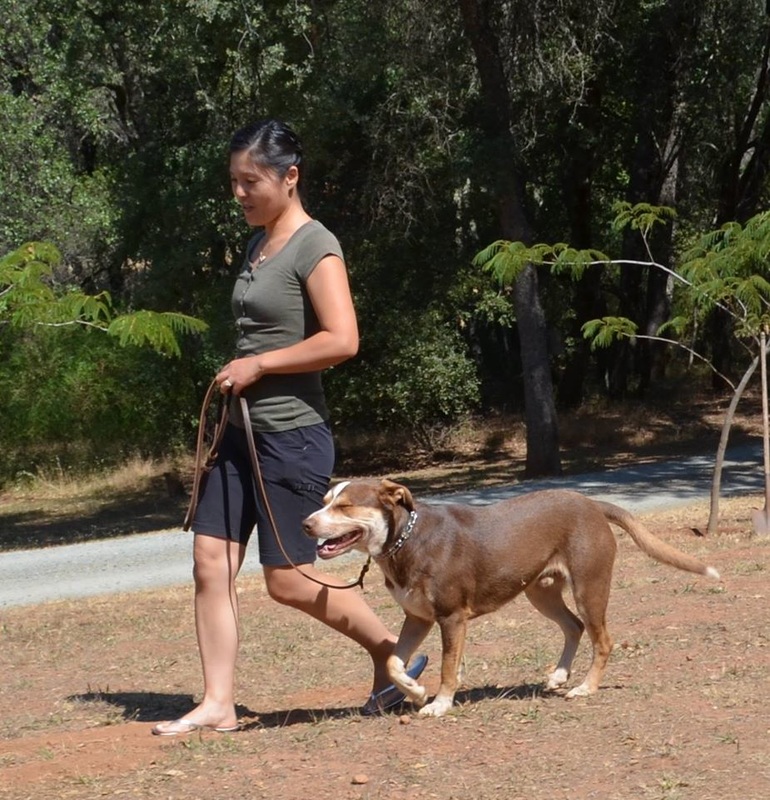
 RSS Feed
RSS Feed

